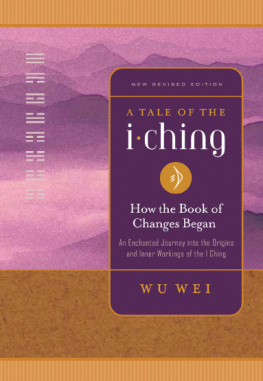This edition published in the Taylor & Francis e-Library, 2005.
To purchase your own copy of this or any of Taylor & Francis or Routledges collection of thousands of eBooks please go to www.eBookstore.tandf.co.uk.
The Tale of Abu Kir and Abu Sir
SHAHRAZAD SAID:
IT is related, O auspicious King, that there were once in Alexandria a dyer called Abu Kir and a barber named Abu Sir, who had neighbouring shops in the market.
Abu Kir was a notorious rascal, a detestable liar, and a man of exceedingly ill life. His temples must have been hewn of indestructible granite and his head formed from one of the steps of the synagogue of Jews; otherwise how are we to explain the shameless audacity which he displayed in all his sins? Among countless other pieces of roguery, he used to make most of his clients pay in advance, alleging that he had need of ready money to buy coloursand that was the last they saw of the stuffs which they had brought to be dyed. He not only spent the money in pleasant eating and drinking, but also secretly sold the stuffs which had been trusted to him and bought himself amusements of a high order with the proceeds. When the customers came to claim their goods, he would find one pretext or another to make them wait indefinitely. Thus he would say to one: As Allah lives, my master, my wife lay in yesterday and I had to be up and down upon my feet all the time. Or to another: I had guests yesterday and all my time was taken up with them; but if you come back in two days the stuff will be ready for you. He drew out every piece of business which came his way to such extravagant lengths that at last one of his victims would be bound to cry: Come, tell me the truth about my stuffs. Give them back, for I have decided not to have them dyed. Alas, I am in despair! Abu Kir would answer, lifting his hands to heaven, swearing every imaginable oath that he would tell the truth, beating his hands together and weeping. Dear master, he would sob, as soon as your stuffs were most beautifully dyed, I hung them on the drying cords outside my shop; I turned away for a moment to piss and when I looked again they had disappeared! If you ask me, I think they were stolen by my neighbour, that most dishonest barber. Then, if the customer were a fine fellow, he would say: Allah will make good the loss!and go his way; if he were irritable, he would probably swear at the dyer and come to blows with him in the open street. But even so, and in spite of the kadis authority, no one ever got back his stuffs; because, in the first place, proof was lacking that they had been given and, in the second, there was nothing in the dyers shop worth seizing. For a long time Abu Kir gained a livelihood in this way; but the day came when every merchant and private individual in that quarter had been victimised, and Abu Kir saw his credit broken beyond repair and his business ruined. He had become so general an object of mistrust that his name had passed into a proverb when anyone wished to speak of bad faith.
When he was reduced to the last straits, Abu Kir sat down before the shop of his neighbour, the barber Abu Sir, and complained that starvation stared him in the face. At once the barber, who walked in Allahs way and who, though poor, was unusually honest, had compassion on Abu Kir, and said: There is a duty from one neighbour to another. Stay with me here; eat, drink, and use the gifts of Allah until the coming of better days. With that he took him into his house and supplied all his needs for a very long time.
One day the barber, Abu Sir, complained to the dyer, Abu Kir, of the hard times, saying: Brother, I am far from being a clumsy barber, I know my business and my hand is light; but, because my shop is poor and I am poor, no one comes to be shaved. Perhaps in the morning at the hammam some porter or fireman gets me to shave his armpits or apply the paste to his groin. Thus I earn a few copper pieces, which hardly feed me and you and the family which hangs about my neck. But Allah is great and generous! Brother, answered Abu Kir, you must be very simple to endure hardships so patiently when you have the means to get rich and live largely. Your trade fails and mine is ruined because of the malevolence of our fellow citizens; therefore our best plan is to leave this cruel country and voyage until we find some city where our arts will be appreciated. Travel is a rare thing; how pleasant it is to breathe good air, to forget the crosses of life, to see new lands, fresh cities, to learn to drive a thriving foreign trade in businesses honoured throughout the world, as are yours and mine! Remember that a poet said:
Whats danger, so the feet may roam
Beyond the town where custom is?
Better be dead than stay at home,
A flea with lice for enemies
Invite your soul to voyages,
For at the gates of new found lands
Wait raptures and discoveries
And gold with laughter in her hands.
Let us shut our shops and set forth together to seek a better fortune. He went on to speak so eloquently that Abu Sir was convinced and hastened to make his preparations for departure. These consisted in wrapping his basins, razors, scissors, and iron in an old piece of patched cloth and saying good-bye to his family. When he returned to the shop, the dyer said to him: Now it only remains to recite the opening chapters of the Koran, to prove that we are brothers, and to agree that each shall put his profits into a common fund, to be equally divided when we return to Alexandria. We should also have an undertaking that whichever of us finds work shall agree to provide for the other, if he cannot earn for himself. The barber Abu Sir subscribed to these conditions, and the two recited the opening chapter of the Koran to seal their bond.
At this point Shahrazad saw the approach of morning and discreetly fell silent.
But when the four-hundred-and-eighty-eighth nighthad come
SHE SAID:
Abu Sir shut his shop and returned the key to its owner, paying his rent in full; then the two walked down to the port and embarked, entirely without provision of food, on board a boat which was about to sail.
Fate favoured them during the voyage, using the better as its instrument. Among the passengers and crew, who numbered a hundred and forty souls, there was no other barber than Abu Sir; so, when the ship was well started, the barber said to his companion: My brother, we need food and drink. I shall go now and offer my services to the passengers and sailors, in case one should wish to have his head shaved. If I can earn bread or money or a cup of water, so much the better for both of us. Go then, answered the dyer, and straightway arranged his head more comfortably and went to sleep upon the deck.










